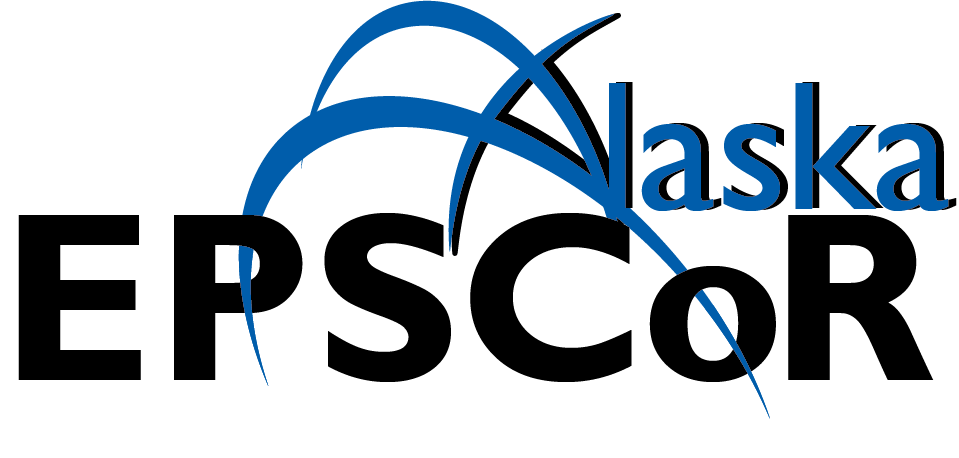IGNITE 2026 Agenda
Individual Growth & New Ideas Through EPSCoR/INBRE
January 7, 2026
9 a.m. - 5 p.m.
BP Energy Center
| Time |
Staff |
Students |
Faculty & Researchers |
| 9:00 a.m. |
Registration Check-In |
||
| 9:30 a.m. |
Networking Breakfast |
||
| 10:00 a.m. |
Event Welcome |
||
| 10:15 a.m. | Keynote Speaker Why Indigenous Research Methods are Essential to Our Learning with Jessica Ross Birch Room |
||
| 11:00 a.m. | Transition & Network |
||
| 11:15 a.m. | The Federal Funding Environment & More with John Latini Birch Room |
Being a Student Mentee - How to Make Mentoring Work for You |
Feedback that Fuels with Marsha Olson Cottonwood/Alder Rooms |
| 12:30 p.m. | Lunch Plenary From ‘Write a Poem’ to ‘Run My Workflow’: Make AI Work For You Kenrick Mock Lunch buffet in Aspen Room, presentation in Birch Room |
||
| 1:30 p.m. | Transition & Network |
||
| 1:45 p.m. |
Feedback that Fuels |
The Federal Funding Environment & More |
Connecting and Cultivating Mentors |
| 3:00 p.m. | Transition & Network |
||
| 3:15 p.m. |
Workplace Well-being: Mentoring for Career Growth and Development |
Communicating with Confidence |
The Federal Funding Environment & More |
| 4:30 p.m. |
Wrap Up |
||
Session Descriptions
KEYNOTE
Why Indigenous Research Methods are Essential to Our Learning
Conference Room: Birch
What are Indigenous methods of research and learning? And why should we care about them? Here in the state of Alaska, there are 229 federally recognized tribes and over 20 Indigenous languages spoken. These tribes have called Alaska home for thousands of years and have established strong relationships with their home environments through generations of stewardship, observation, and experimentation. Alaska Native innovations, inventions, and knowledge have contributed not only to the survival of our tribal communities but also to their ability to adapt and thrive in a rapidly changing world. The research community would greatly benefit from embracing Indigenous methods of learning, as these approaches would enable better collaboration with Alaska’s most longstanding communities, helping us to understand better and appreciate the place we all now call home.
PLENARY
From ‘Write a Poem’ to ‘Run My Workflow’: Make AI Work For You
Conference Room: Birch
This session will demystify how AI works and cover tools, applications, and strategies that can be utilized by researchers, staff, educators and administrators to help you do your work. We will also discuss the current state of AI, where the field is headed, and responses to concerns that span government entities to professional societies.
STAFF | STUDENTS | FACULTY
The Federal Funding Environment & More
Conference Room: Birch
This session will provide an overview of the current federal funding environment for research and development, discuss challenges facing universities but also highlighting opportunities, and outline ways to navigate and engage in the ever-changing federal environment.
STAFF | FACULTY
Feedback that Fuels
Conference Room: Cottonwood/Alder
Develop the skills to give and receive feedback that sparks growth, trust, and collaboration. This session will explore practical communication tools to transform feedback from a source of discomfort and tension into a catalyst for motivation and improvement. Regardless of which side of the feedback you find yourself, learn how to transform that experience into one that drives success.
STAFF
Workplace Well-being: Mentoring for Career Growth and Development
Conference Room: Willow/Spruce
In this session, participants will explore actions they can take to mentor, and be mentored, in their current roles to support growth and well-being in the workplace. Through engaging discussions, participants will discuss how pairing new hires with experienced staff, identifying clear goals and learning objectives, and setting expectations can lead to increased job satisfaction. They will explore and identify ways they can advocate for themselves and utilize workplace resources to enhance their mentoring experiences. Materials will be provided that participants can use and adapt for implementation.
STUDENTS
Being a Student Mentee - How to Make Mentoring Work for You
Conference Room: Willow/Spruce
In this session, undergraduate students will review best practices in mentoring, the intersection of well-being and mentoring, and the roles of mentors and mentees. They will have the opportunity to reflect on the skills and the experience they would like in a mentor as well as identify the professional skills that they would like to further develop. They will explore and identify ways they can advocate for themselves and foster success in their mentoring relationships. Resources will be provided that students can use and adapt for their mentoring journeys.
STUDENTS
Communicating with Confidence
Conference Room: Cottonwood/Alder
Whether you’re presenting a research poster, speaking up in class, or delivering a talk, confidence can make all the difference. In this interactive session, we will explore strategies to project confidence in academic and professional settings. Drawing on communication research and practical techniques, participants will learn how to manage nerves, strengthen their presence, and speak with clarity and credibility—so their ideas are heard and remembered!
FACULTY
Connecting and Cultivating Mentors
Conference Room: Willow/Spruce
This interactive session is designed for faculty, researchers, and graduate students to deepen their understanding of effective mentoring practices. Participants will review foundational elements of holistic mentoring in higher education and discuss strategies for supporting their student mentees. They will have the opportunity to reflect upon their current mentoring approach and identify areas for growth. Resources will be provided that participants can use and adapt for implementation.
Presenters
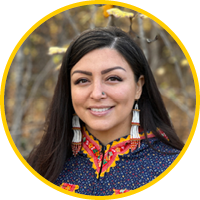
Jessica Ross is a Dena'ina tribal member of the Native Village of Eklutna. She serves as an assistant professor in the Human Services and Alaska Native Studies programs at the University of Alaska Anchorage. Professor Ross' education includes current work towards a Ph.D. in Indigenous Studies, a master’s degree in education, and a bachelor's degree in dental hygiene. Professor Ross began her teaching career in 2016 at the University of Alaska, where she led head and neck anatomy, patient management, instrumentation, and clinical practicum courses in the Dental Hygiene program. Her work in human services allows her to continue developing culturally responsive and trauma-informed (CRTI) approaches to practice while also leading efforts for the Indian Child Welfare Act (ICWA) Occupational Endorsement Certificate (OEC) program. Professor Ross founded the Nughejagh project (Dena'ina for "to become whole"), a participatory initiative that explores the implications of trauma and the potential healing effects of Indigenous cultural revitalization.

Kenrick Mock received his Ph.D. in computer science from the University of California Davis with a research emphasis on AI for natural language understanding. He has worked at organizations including Intel Corporation, Los Alamos National Lab, Apple Computer, and a technology startup. A faculty member at UAA since 2000, he is currently Dean of UAA's College of Engineering.
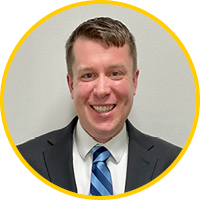
John Latini joined the University of Alaska Office of Government Relations in 2022 as the executive director of federal relations. For the past 18 years, Latini has worked in Washington D.C. and brings both higher education and congressional experience to his current role with the university. Prior to UA, he was with Penn State University including as the director of federal relations leading the university’s D.C.-based advocacy efforts to increase federal funding for scientific research and student financial aid. Latini also served as a legislative adviser to two different members of congress. Originally from Bucks County, Pennsylvania, Latini graduated from Bloomsburg University of Pennsylvania with a bachelor’s degree in political science. He earned a master’s degree in public administration and a graduate certificate in public budgeting and financial management from Penn State University, and an MBA from the University of Alaska Fairbanks (UAF).
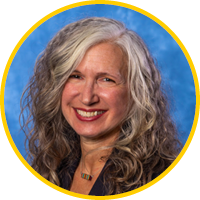
Lori Gildehaus serves as the Director of Undergraduate Research and Scholarly Activity (URSA) and the program administrator for Research Advising and Mentoring Professionals, a mentor training program at UAF. Gildehaus received a B.S. in Biological Sciences from the University of Missouri-Columbia, and a M.S. in Wildlife Biology from UAF, where she is currently pursuing her Ph.D. in Interdisciplinary Studies exploring students’ educational experiences. Since joining UAF in 2002, she has served as the assistant program manager, program administrator, and associate director for numerous programs focused on advancing mentoring initiatives and strengthening student engagement in research. She has developed mentor training materials and facilitated dozens of mentor workshops for research staff, faculty, undergraduate and graduate students, across UA campuses and other institutions. She enjoys running, fat biking, cooking, and dreaming about being a Great British Bake-Off contestant.
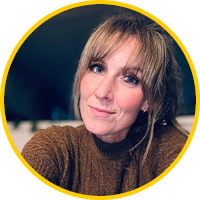
Marsha Olson has been a faculty member at UAA, teaching both communication and university studies classes, since 2010. Marsha earned her bachelor’s degree in communication and master’s degree in professional communication from UAF. She regularly teaches courses focused on developing student confidence in all aspects of communication, from interpersonal relationships to presentations. Additionally, Marsha has collaborated with UAA staff to create leadership development resources for fellow employees. She works in a consulting capacity as well, supporting local organizations with public speaking workshops and communication training opportunities. A lifelong Alaskan, Marsha grew up on her family farm in Wasilla, moved to Fairbanks for college (and to play basketball for the Nanooks), and now resides in West Anchorage. She spends much of her free time running with her husky mix, attending concerts, and attempting to garden, with varying degrees of success.

